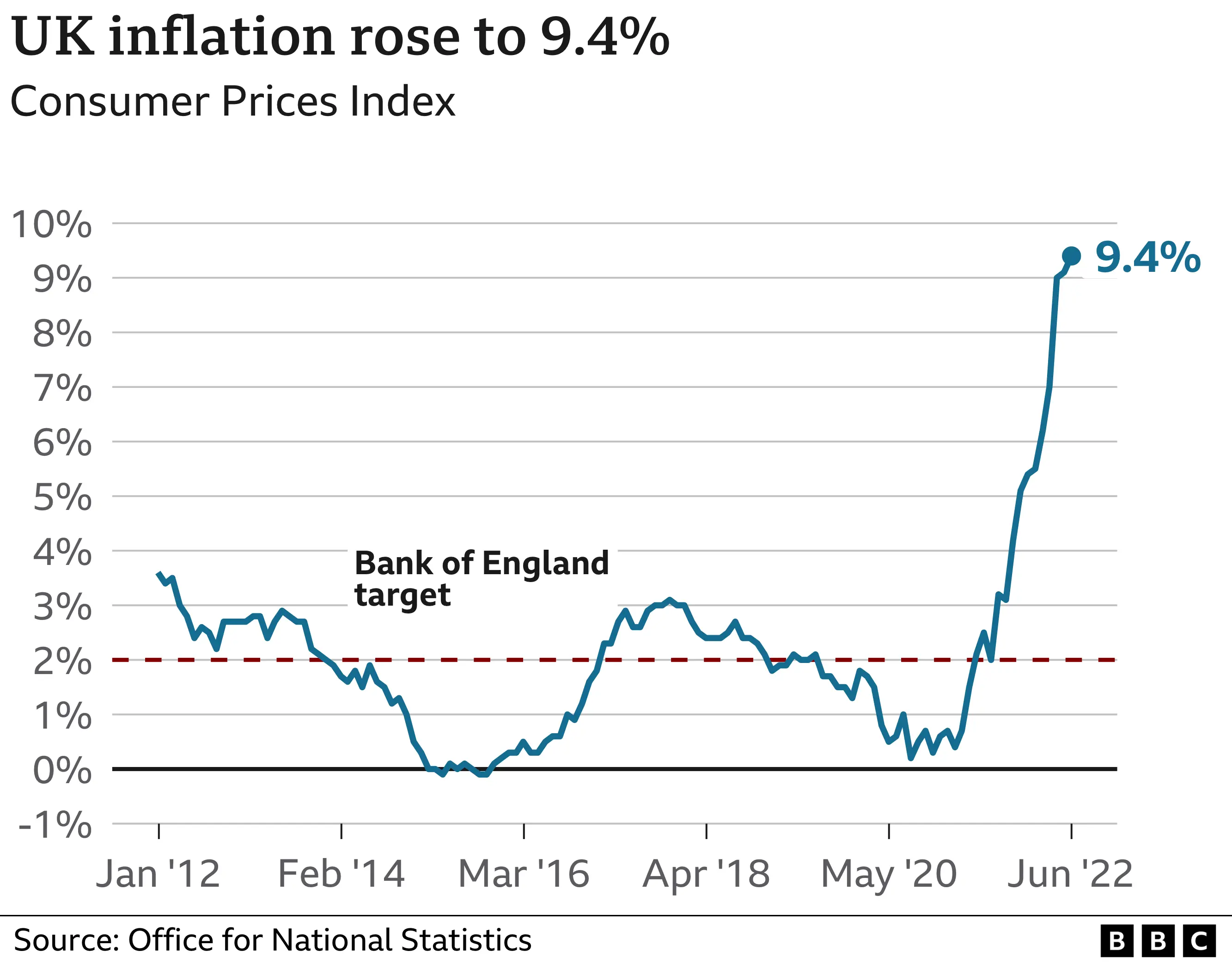Cost of living: Wales' low-income help 'must be easier'
 Getty Images
Getty ImagesIt should be easier for people on lower incomes to apply for help to ease the cost of living, a cross-party Senedd committee has said.
The report said people may miss out on cash from the Welsh government due to over-complex application systems.
The warning, by the economy committee, comes as inflation soars and further large hikes in gas and electricity bills are due this autumn.
Welsh ministers highlighted their efforts to encourage benefit claims.
They said more than 8,000 people responded to a campaign on the issue, who were helped to claim more than £2.1m.
Last week, the Welsh government announced more households would receive help with fuel bills.
An additional 200,000 more low-income households in Wales will be offered a £200 payment, meaning 422,000 will be able to claim the cash this autumn under the Fuel Support Scheme, in addition to UK government assistance with energy bills.
Inflation is currently 9.4%, as prices rise faster than they have for 40 years, with food, petrol, diesel and energy costs largely responsible.
What help can you get for your bills?
As well as the Fuel Support Scheme, the Welsh government is funding a £150 cost of living support payment to households eligible for the Council Tax Reduction Scheme and all homes in council tax bands A to D.
There is also a Discretionary Assistance Fund and a Fuel Voucher Scheme for people on pre-payment meters, in addition to long-running programmes such as free school meals and the Council Tax Reduction Scheme.

Giving evidence to the inquiry, conducted by the Welsh parliament's economy, trade and rural affairs committee, Dr Steffan Evans from the Bevan Foundation think tank, said a more coherent "Welsh benefits system" for the different means-tested support schemes was needed.
"If you're a family in Wales on a low income and you're eligible for the various schemes, and you've got a child aged two and a child aged seven, there are about five or six different support schemes that you are eligible for just from Welsh government, and there could be another two or three discretionary schemes that you could be eligible for.
"So, that's potentially eight or nine different application forms that, in some parts of Wales, you might have to be filling in just to get everything you're entitled to."
Dr Evans said there was a "wealth of evidence" that the more forms people have to fill in, the "less likely they are to claim all of it".
What changes does the report call for?
The committee's "cost of living pressures" report calls on the Welsh government to "accelerate work to bring together means-tested support schemes for low-income households through a Welsh benefits system".
"The new system must ensure greater consistency in local authorities' delivery, and move towards a position where people who need one form of support are automatically passported to other sources of assistance that they are eligible for".
It also suggests ministers "work towards developing a one-stop shop portal through which households across Wales can apply directly to their local authority for the different means-tested schemes that are available".
In March, Mark Drakeford told the Senedd's scrutiny of the first minister committee that some local authorities were better than others at "passporting" benefits - where qualifying for one form of help automatically qualifies you for other assistance - but that IT systems could be an issue with this.
The report's 27 recommendations also include:
- Extending the eligibility criteria of its schemes to support households "just missing out"
- Establishing an emergency support funding programme, working like the Covid support schemes, to help businesses most affected "through the peak of the cost of living pressures" with grants, low cost loans or a combination of both
- Supporting businesses to invest in efficiency savings to help them lower fuel and energy costs
The committee calls for all public bodies in Wales to pay the Real Living Wage.
Committe chairman, Conservative Preseli Pembrokeshire Member of the Senedd Paul Davies, said despite Welsh government efforts "the support is simply not reaching enough people - the benefits available are complex and that can affect take up".
"We need to see a simpler system, so the schemes are easier and more accessible to increase take-up," he said.
The committee wanted ministers to improve terms and conditions for the lowest paid, said Mr Davies, on areas such as sick pay for social care workers and providing a "fair wage for those paid from the public purse".
How have ministers responded?
The Welsh government said it had "prioritised our 'Claim What's Yours' campaign" to raise awareness for those on lower incomes to access the benefits they may be entitled to while calling on the UK government to "take the lead and develop a UK-wide benefit take-up campaign".
It added: "We will continue to build on our excellent benefit take-up work, putting more measures in place to support households across Wales to maximise their income."

- A CAREER CHANGE WITH A DIFFERENCE: Police new recruits adapt to life on the beat
- THE CRASH DETECTIVES: Inside the cordon with Gwent Police's forensic collision investigators

